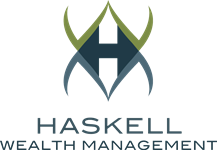Business Planning for Business Owners
Business owner’s mindset is for long term survival. According to the U.S. Bureau only 25% of new business make it 15 years or longer. They are laser focused on growing their business in the early years and not business succession planning. Not having a plan for your business when you are not around is a big risk to the future and long-term survival of your business. Succession planning is not only about death. Disability and personal bankruptcy can disrupt the operation of the business and impact negatively the value of the business. Rather than think of business succession it should be considered as business continuity.
A sole proprietor or single owner of an S or C corporation death or disability can mean the end of the business. Their spouse or heirs might not have the ability or desire to run the business. Key person life insurance on the owner can provide resources to hire someone to run the business and preserve the value of the business until it can be sold. Often these businesses have a key person other than the owner. Key person coverage is important on that person and it can be structured with permanent insurance to help the key employee purchase the business at death or disability. Business overhead insurance will provide proceeds to pay the overhead of a business if the owner is disability allowing time for the owner to recover or preserve the value of the business to be sold.
Partnership’s bring its own set of unique problems. If your partner dies you can find yourself in business with their spouse or kids. Your partners personal financial problems could put you in business with their creditors. All these scenarios are not desirable and will disrupt your business and hurt your businesses value. A buy sell agreement is not only for death but provides the rules and a roadmap to handle divorce, disability, and bankruptcy. Life insurance can fund the buy sell at death and permanent life insurance on a key person can provide resources to buy out an owner.
Here are four best practices regarding buy sell agreements:
- A buy sell agreement should be creating in the beginning. They can be updated and should be updated overtime as the business evolves.
- The buy sell agreements should include the formula for valuing the business. A formal business valuation is not always needed a capitalization calculation or book value can be used too.
- What are the rules is probably the most important consideration in drafting a buy sell agreement. This states who can or cannot be a buyer and how the sale will be funded. A trigger clause should be added outlining what circumstances trigger a sale i.e....bankruptcy and disability.
- Buy sell agreements have tax implications and making sure the buy sell agreement is paramount to making sure taxes are minimized. Having your accountant working with your accountant is key.
Business continuity planning provides a formal road map to make sure that you are that you have a desired exit strategy and that your business has a plan to handle partner disability and personal financial problems. All these problems can be planned for but become a crisis when they have not been.

Securities offered through LPL Financial, Member FINRA/SIPC. Investment advice offered through WCG Wealth Advisors, a registered investment advisor. WCG Wealth Advisors and The Wealth Consulting Group are separate entities from LPL Financial.
Disclosures:
This material contains only general descriptions and is not a solicitation to sell any insurance product or security, nor is it intended as any financial or tax advice. For information about specific insurance needs or situations, contact your insurance agent.

